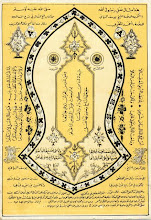LOVE EVEN THOSE WHO REVILE YOU
Interview with Shaykh Hamza Yusuf
Q: The convenient response to those who revile your religion is to return the favor. The more virtuous position however is to forgive. Forgiveness as you know, while less in virtue when compared to love, nevertheless, can result in love. Love, by definition, does not require forgiveness. What many Muslims today seem to forget is that ours is a religion of love and our Prophet, upon him be peace and blessings, was the Habib, the Beloved. How did love, the defining virtue of our community, come to be replaced by an urge to redress wrongs, to punish instead of to forgive?
Shaykh Hamza Yusuf: It is the result of Muslims seeing themselves as victims. Victimization is a defeatist mentality. It's the mentality of the powerless. The word victim is from the Latin “victima” which carries with it the idea of the one who suffers injury, loss, or death due to a voluntary undertaking. In other words, victims of one’s own actions. Muslims never really had a mentality of victimization. From a metaphysical perspective, which is always the first and primary perspective of a Muslim, there can be no victims. We believe that all suffering has a redemptive value.
Q: If the tendency among Muslims is to view themselves as victims which appears to me as a fall from grace, what virtue must we then cultivate to dispense with this mental and physical state that we now find ourselves in?
Shaykh Hamza Yusuf: The virtue of patience is missing. Patience is the first virtue after tawba or repentance. Early Muslim scholars considered patience as the first maqam or station in the realm of virtues that a person entered into. Patience in Islam means patience in the midst of adversity. A person should be patient in what has harmed or afflicted him. Patience means that you don’t lose your comportment or your composure. If you look at the life of the Prophet Muhammad, upon him be peace and blessings, you will never ever find him losing his composure. Patience was a hallmark of his character. He was ‘the unperturbed one’ which is one of the meanings of halim: wa kaana ahlaman-naas. He was the most unperturbed of humanity. Nothing phased him either inwardly or outwardly because he was with Allah in all his states.
Read More Here
Q: The convenient response to those who revile your religion is to return the favor. The more virtuous position however is to forgive. Forgiveness as you know, while less in virtue when compared to love, nevertheless, can result in love. Love, by definition, does not require forgiveness. What many Muslims today seem to forget is that ours is a religion of love and our Prophet, upon him be peace and blessings, was the Habib, the Beloved. How did love, the defining virtue of our community, come to be replaced by an urge to redress wrongs, to punish instead of to forgive?
Shaykh Hamza Yusuf: It is the result of Muslims seeing themselves as victims. Victimization is a defeatist mentality. It's the mentality of the powerless. The word victim is from the Latin “victima” which carries with it the idea of the one who suffers injury, loss, or death due to a voluntary undertaking. In other words, victims of one’s own actions. Muslims never really had a mentality of victimization. From a metaphysical perspective, which is always the first and primary perspective of a Muslim, there can be no victims. We believe that all suffering has a redemptive value.
Q: If the tendency among Muslims is to view themselves as victims which appears to me as a fall from grace, what virtue must we then cultivate to dispense with this mental and physical state that we now find ourselves in?
Shaykh Hamza Yusuf: The virtue of patience is missing. Patience is the first virtue after tawba or repentance. Early Muslim scholars considered patience as the first maqam or station in the realm of virtues that a person entered into. Patience in Islam means patience in the midst of adversity. A person should be patient in what has harmed or afflicted him. Patience means that you don’t lose your comportment or your composure. If you look at the life of the Prophet Muhammad, upon him be peace and blessings, you will never ever find him losing his composure. Patience was a hallmark of his character. He was ‘the unperturbed one’ which is one of the meanings of halim: wa kaana ahlaman-naas. He was the most unperturbed of humanity. Nothing phased him either inwardly or outwardly because he was with Allah in all his states.
Read More Here


2 Comments:
Beautiful
It is just great! Very rewarding. Jazakallah khair.
Post a Comment
<< Home